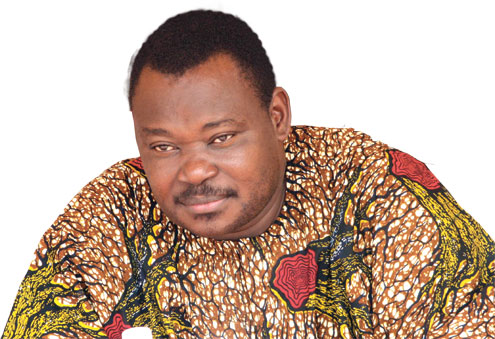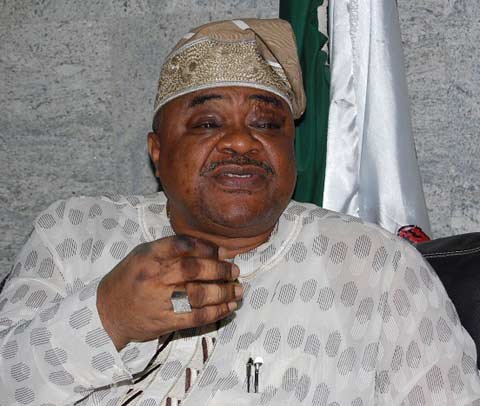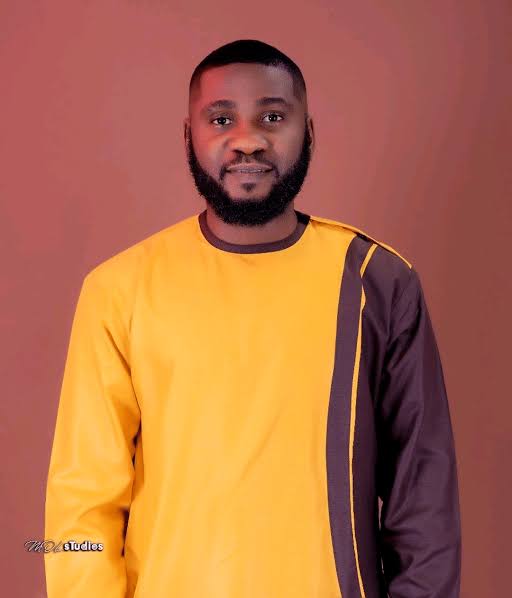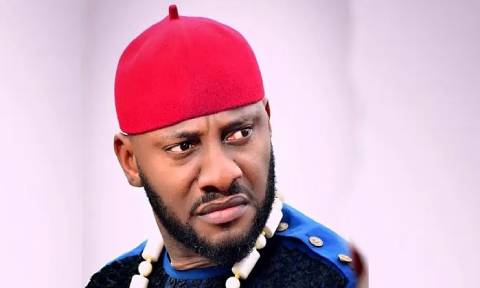
Chairman of NICON Group, Barrister Jimoh Ibrahim, spoke with YINKA OLADOYINBO on the economy, politics, the next general elections and how he fought poverty and became a businessman of repute in Africa. Excerpts:
Can we know your background right from your primary school days?
When I started primary school, I must tell you the truth, I was second last in my class. There used to be 24 pupils in a class, I always got the 23rd position. Ade, son of a reverend, used to get the 24th position, so, we were best friends. We alternated the 23rd and the 24th positions. I was growing in a polygamous home of 50 children and seven wives in a house, so, things were very tough. It was very difficult to develop.
There was no substantial improvement until I got to primary six when we wrote the common entrance examination. I applied to Stella Marris College, Okitipupa and surprisingly, when the result came, I was number 10 on the list. Then came the interview, where you had to do so many other things. I could not cope, so, I could not make Stella Marris. I later got admission into one community secondary school in Igbotako, but this time around, my father had decided to sponsor a child from a mother. I could not get the slot because I was the second of my mother’s children, but I was moving fast.
When I got to secondary school, my father contemplated having me inherit his bricklaying business because I was hardworking, but my mother insisted that I must be in school. My mother sold fish, so, when we returned from school, we hawked fish or went to the farm. The day you did not hawk fish, you had to go to the farm, which was about 10 to 20 kilometres, to fetch woods.
By the time I sat for WAEC, it was not a problem. I had a good result that took me to Federal School of Arts and Science, Ondo, from where I proceeded to the university to study Law. What is important there is self-development effort. I did menial jobs after school to buy books. I was conscious of the fact that the suffering on my mother’s side was not too good, so, I was ready to become brilliant at all cost.
I first went to LASU, then I transferred to Ife and did well in my class, leading in some of the courses. When I got to Harvard, it was too clear as I was having four “As.” I finished my programme before the time allotted for it. I studied combined masters in Law and International Tax. We could do four courses in a semester, another four in the last semester. What I did was that in the first semester, instead of doing four courses, I did seven courses and passed all of them.
What about financing the study?
Financing was difficult. I recall that when I was in Ife, there was a woman called Mama Foluke, who I have been helping after I became what I am now. We ate from her and wrote down our debts in a book. We could eat for two months and continue to have our debts recorded. A student could come and steal the book. When we graduated, I looked for her and gave her N1 milion because she fed so many students as of that time and anytime we wanted to pay, they would say the book was lost.
One thing I did in Ife to sustain my education was that there was a tutorial called Universal College in Ife, headed by Dr. R. A. Adedoyin. I was a teacher in that school and he was paying me N10 per hour to teach WAEC students because I had A1 in Government and A1 in Economics and Geography. So, in a week I could do eight hours and make N80. So, it was not difficult for me. Before I finished, I had bought a car. I realised in the library that there were laws of the federation, laws of states, but not law for local government, so, I began to think of having seminars that would lead to coordination of laws for local government. So, I was the first person in this country to set up seminar for local government officials.
I did five seminars and also did faculty law journals and I bought my first Beetle car. When I finished my NYSC, I had the first national workshop on local government laws.
We charged N5,000 per local government and we invited four officials from each local government and we had 774 local governments. That was when Babangida was doing reform on local government autonomy. We were making between N5 million and N7 million from a seminar. I had 21 seminars, so, I built my house in Egbe and I still had over N20 million in my account. That led to the setting up of a research centre for seminar and I called it African Centre for Policy Studies, but mind you, I did not do seminar for the private sector.
I was able to build my house in my home town 21 years ago. It was the biggest house there before General Bajowa built his. I was able to do many things. I set up my chamber and equipped it. It was in the course of looking at how local governments could increase their revenue generation that I discovered that there were no payments of tax from the oil industry. I did a proposal to (late General Sani) Abacha that I could help to collect tax in the oil sector and he said I must be joking.
I remembered my proposal, in which I said they should pay me anything, that they should just let me collect it and we realised over N48 billion for the government. I was the highest employer of accountants in Nigeria. I was about to start with withholding tax in the banking sector when Abacha died and you can imagine how many billions of naira that would have accrued to the government because many banks were opening branches and they were not paying withholding tax.
Were all these things not meant for the private sector?
Today, we can still implement these things, just like when you called me for the Tribune lecture. I said that one sure way of making money was to set up a public sector training department. I still believe that the public sector is not efficient because they lack training and the people to train them are not there because nobody is focusing on that area.
If the Federal Government says today that every state government must remit its withholding tax, it is very simple. It means the state governments will not give out a contract without deducting withholding tax, which is five per cent or 10 per cent of contract they are awarding. It means that this amount go back to the Federal Government. We can train ad-hoc staff, about 10,000 employments can be created for people to monitor this.
Now, we have a typical bank in Nigeria that has about 500 branches. They have customers’ accounts, they make interests on those accounts through withholding tax. Who monitors it? How many accounts do we have in this country. The owner of idea is the ruler of the world. How dare someone has N1.5 billion that was discovered by EFCC (Economic and Financial Crimes Commission) and they are deducting withholding tax from that person’s account. Who is collecting the withholding tax? Who found out whether or not the tax is remitted? Monitoring of those taxes is not there and the number of accountants we have is not enough to do the monitoring.
If you now talk of monitoring the real sector, there will be a lot of jobs for Nigerians to do. I have proposed to Chief (Olusegun) Obasanjo and I charged N20 million, but baba shouted at me and he did not want to pay the fee, so, I did not want to give him the key. I said upgrade the Board of Internal Revenue to a full-fledged ministry; call it Ministry of Revenue, direct state governments to also upgrade their inland revenues to full-fledge ministry and the country will be better.
I put up something in the Corporate Affairs Commission (CAC) where I am chairman now. We will be launching it this month and it has been approved by the government.
You will not be allowed to incorporate any company in Nigeria without providing the information on the data page. We will give you up to September to offload to us the data page of your directors, so, we will also know when minors are made directors. When we have this data base, we frontload to EFCC, so, it will no longer be possible for bank managing directors, as alleged by Sanusi, to register 100 companies in a day and then advance over N70 billion as loans. you have to provide 100 international passports.These are reforms you need to move the country forward.
What do you have to say about corruption in the country?
I don’t think it is all about corruption. For example, in 1994, when General Sani Abacha was head of state, I had the privilege to represent Nigeria in Hong Kong. We were discussing the handover of Hong Kong to China. At that time, there was heavy corruption. Every Hong Kong citizen had two passports. China was the most corrupt economy in the world. China passed a law and said that if you want to take bribe to give out a contract, you were allowed to do that, but you were duty-bound to perform the functionfor which you had taken the bribe. In other words, they legalised corruption and what happened next?
People were killing themselves. So, society was now clamouring that government should help them and China came up with a solution that said if you take bribe again, you face the firing squad. I know the major problem in our society is corruption, but I think it has been overflogged. The instruments available make corruption to thrive and we must correct those things. We have the Corporate Affairs Commission (CAC) that registers companies based on names supplied to it without investigation. That is corruption. If you check that, corruption will be reduced.
Don’t you think this has to do with leadership problem?
Are you surprised that we have leadership problem? We have 95 universities and none of them awards a degree in leadership. So, a university student doesn’t hear any lecture on leadership until he graduates and starts to work and they say you have been promoted to the next level and you are now a leader. They now start to tell him the attributes of a leader.
No university today in Nigeria awards a degree in entrepreneurship. We will get to a stage where we will need more entrepreneurs to create jobs. How will they come? Why do we need to bring in degree in anthropology in 95 universities? Do anthropology in six universities and then do entrepreneurial study in 20 universities and do leadership in 30 universities. Why do we need to have degree on political science without leadership? Those who graduate with political science are not the politicians on the street. So, where are the political scientists?
As an employer of labour, have you noticed what is usually referred to as Nigerian factor in some of your workers and in what ways have you tried to guard against it?
We tried to recruit people who have the prospect of becoming competent, we don’t recruit people that are competent. We know they may not be competent from day one, but we also know that they could be competent. There is no Nigerian factor because I won’t recruit if you don’t pass the examination, but there are a few occasions when we recruit people who didn’t write exams, but they are not more than 10 per cent of the workforce.
Your bank was recently inaugurated in Ghana. Why not Nigeria and what was the motive behind establishing a bank?
Why a bank? Our company is now diversifying. Jimoh Ibrahim, as far as business is concerned in Nigeria, is not a hidden name. We are in the media (National Mirror); we are in the hospitality business (Nicon Luxury); we are in insurance (Nicon Insurance); we are in Nigeria Re-Insurance; we are into aviation with Air Nigeria and we cover the ground. The next stage is to set up a structure that will sustain the ground and we have done that. Now, the next stage is zero your loan to about 10 per cent of your asset, we are actually 0.5 per cent of asset to loan.
You cannot die as a local entrepreneur. People want to know you. Go regional. Now, we are in Sao-Tome. We did it two years ago. We set up an insurance company in the country and it is the biggest insurance company in there today. We have a university licence in that country, now, we have moved to Ghana. After Ghana, you should expect us to move to the United Kingdom.
Now, why banking? It is banking because the recession that happened has taught us a great lesson. During the recession, Nigeria wanted to do a banking reform and they went to the extent that unless you knew somebody in the banking sector, you were not likely to get any loan or funding. If you are running a big company and you are not connected to the bank, in the next five years, you are likely to lose that company because what drives the business will be the funding.
As an investor, are you comfortable with the Nigerian political climate?
The politicians will have problem with you if you patronise them in your business. I don’t patronise politicians in my business. As an investor, I am not comfortable with many government policies, but I think the government can be challenged by the law. When Nicon was taken away, I told them, ‘you were wasting your time.’ I went to court and got an order against them and what happened? When I was about to send them to jail, they said they wanted to settle out of court. So, we dictated the term and we settled out of court. You must have the courage to fight for your right once you know that you have not violated any law. The only thing is that I have made up my mind that I will never violate Nigerian law and if I don’t violate the law, I will enforce my right and if I cannot enforce it here, I go to International Court of Justice and enforce it.
As a businessman, do you feel comfortable with the security situation in the country?
Well, the security is not there, but again, I have been telling people, ‘you should also invest in your security.’ You are supposed to invest 10 per cent of your worth on security. There are businessmen in Nigeria who have N10 billion each in their accounts and they cannot invest N1billion each on their security and that of their business.
Everything doesn’t depend on government. In my own case, I try to invest three per cent of my worth on my security and as the situation becomes increasingly dangerous, I want to move to about 10 per cent. It is not having police around you alone that is called security. If anything is going to happen, you should know by way of intelligence. Go to Israel, they will secure you. Government has the fundamental right to provide security, but if it is failing, provide safety for yourself.
But what will be the fate of ordinary Nigerians?
No matter how ordinary you are, you should have ordinary security. You are moving around and you are eating, you should have security for yourself because if you continue to ignore yourself, by the time they put hammer on your head, you are gone.
Do you foresee free, fair and credible elections in April?
There will be free and fair elections. The only thing is that I think there is excessive advantage for the PDP (Peoples Democratic Party) because the PDP can fund their elections, but the other parties may not be able to do so the way they would have wanted. If other parties don’t get victory, they might begin to protest. I think there might be some crises after the polls because there could be protest as people have said they would not be going to court this time around.
Do you think it is possible for PDP to take over Lagos?
One thing that cannot be taken away is that (Babatunde) Fashola is a hardworking governor. There is no doubt about that. In the midst of this, certain things have happened that he should be conscious about.
Number one, how did PDP win election in Ibeju-Lekki and Ikorodu and why are they dominant in Badagry? In fairness, I can’t have an answer to this. When I was told that PDP won election in Lekki, I was shocked. I know Epe is PDP and one other thing I know is that Fashola is concentrating developmental projects in Alimosho area where we have huge voters, but you cannot rule out anything. You still have to go and talk to the people, Fashola too should be careful about the arrangement with which the election will be conducted.
We will have the presidential election which President Jonathan will win and this can have effect on the voting pattern of the people. I think these are areas that Fashola should be worried about and I also know that a lot of people that live in Lagos are not from Lagos. There are Hausa, Igbo and others. Fashola also needs to do a lot of massive campaign if he must sustain his leadership of Lagos. But again, the PDP candidate looks like somebody that is not making the noise because he is an introvert and introverts are very dangerous people. They have a way of getting what they want because this fellow has worked through the rank in the ministry, he does not have any blemish. There will be challenges and with Bode George now out, it can go either way.
What do you feel about the Ribadu’s presidential ambition?
When Nuhu told me he wanted to be president, I laughed and told him that it is good to register his interest. I think all he is doing is to register his interest. The presidency of Nigeria deserves more than that. What pedigree do we know Nuhu for? But it is good as a young man to register his interest.
You have been investing in the PDP in Ondo State. What is your target?
I am a PDP person. You know I used to follow Buhari. We were in the same party for many years. He could not make the presidency, so, I changed to PDP. Personally, I had to go to PDP because I have to contribute to the development of the country and the only way I can get that done is through the PDP, unless I am a fool.
However, ambition is always in politicians. When a politician fights for an office and he cannot get it, he will keep on fighting for it. If am 70 years old and I don’t get gubernatorial seat of Ondo State, I will still contest at that age. Three of us contested election in 2003 -Adefarati, Agagu and myself. Baba Adefarati was born in February, Agagu was born in February and I was also born in February. Adefarati has done his own as governor and he did very well. Agagu has done his own, he has gone, remaining me. And look at the way nature did it again, my birthday is February 24, that was the day Mimiko was sworn in as governor. Maybe, there are some heavenly arrangements that are dictating to me, but it does not mean that it will happen this coming election. However, don’t rule it out, one day, I will be governor.



















